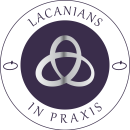In response to your suffering, the Analyst asks you, ‘What is your desire?’
You answer, ‘But, I don’t know!’
It is a step from there to ask, ‘How can I know my desire?’
There are many ways that we can approach this intimate question. We have already implicitly indicated that suffering, for psychoanalysis, has something to do with the intimacy of unconscious desire.
Freud’s Oedipus locates this desire in its points of fixation; its entanglements in early libidinal experiences in the family, particularly the passions related to one’s mother, father and a variety of significant others.
In his Seminar XI, The Four Fundamental Concepts of Psychoanalysis, Lacan formalises this in the aphorism, "man's desire is the desire of the Other." From the rivalry between children fighting over the toy chosen by one and snatched by the other, to the contemplation of the infinite and the desire of a biblical God, the question of the other/Other, small and large insists. Without an experience of other/Other and its disturbance of difference, it is impossible to begin to discern, to give form to, what is at the core of our being, our desire. This other/Other, friend or foe, loved and hated, both illuminates and obscures and illuminates this inescapably looming yet formless current of being. Lacan asks the question, have you acted in conformity with your desire. It is not the same thing, when, in our fixations, we are acting in conformity with our reactions to the desire of the Other.
Lacan’s Seminar VI is entitled, Desire and Its Interpretation. In this title, it is possible to read desire less as the object of interpretation but desire as the Subject who is interpreting. I cannot escape that my desire is articulated literally in my interpretations; eg, the direction of the interpretation – in thought/affect, speech, or action - that I give is determined by the orientation/fixation of my desire: it is wonderful, it is terrible; I praise it or condemn it. Fixation keeps me on the perpetual treadmill of my dissatisfaction, ie my reaction to my interpretation of the Other's demand.
Now, the orientation of my desire may be ensnared in the fixations of my early life; my disappointments, my losses, my resentments, my sense of injustice, my impotence, my being loved too much. too little or perhaps, not at all etc. If I cannot have the toy, I want the toy destroyed, or the other destroyed. My desire may be presenting in a symptomatic way as stalling on the repeated destruction of toys and/or others. Or, I may be the one being destroyed, as I have identified with the toy that was taken from me, or the resonance of the other’s intention towards me, or as the one robbed. The suffering will be organised around the particular angle of (mis)perception and the point of (mis)identification are pivotal for my liberation, and the subtle truth of being that I am compelled to retrieve.
So, there is something more subtle in a zone beyond that which can ordinarily be captured in language. In reaching for the toy that the other had chosen, perhaps, it was an impulse to give form to my desire, to signify – by assigning material expression to - my potential for being something. If I noticed the toy only once it was chosen by another, it is not the radiance of that particular object that inspired excitement of desire, and my gesture to take it. Perhaps, it was the other’s ability to choose that radiated, or their joy in choosing, or perhaps, in that moment, I was just needing to make a choice, any choice, something, anything, to localise, to ground this current of libidinal dynamism, or to simply spend it, neutralise it, discharge it, to give it a rest. Who knows?
Well, no one, knows as such! But one who is suffering needs to know because their desire is insisting on being given its authentic expression. This insistence of desire taking on a body in diverse forms of suffering assures us that one who is suffering can come to know, as it is the very sign of it being in play. The pressure to ask the question will keep playing out in our suffering for as long as we are ignoring (repressing, disavowing, foreclosing) our real and unending potential of being. The truth of this potential of being can only incarnate via the incalculable inspirations of desire and the figures and forms that only it can give rise to.
This, 'no one knows' is what makes it possible to approach suffering in an original way; to invite you to speak about what concerns you, so that you can begin to begin to glimpse and give words to what you have perhaps always known but didn't realise. The session is an opportunity to do so, again and again, and again, for as long as it takes to find new coordinates and new possibilities that are original to your intimate way of being.
